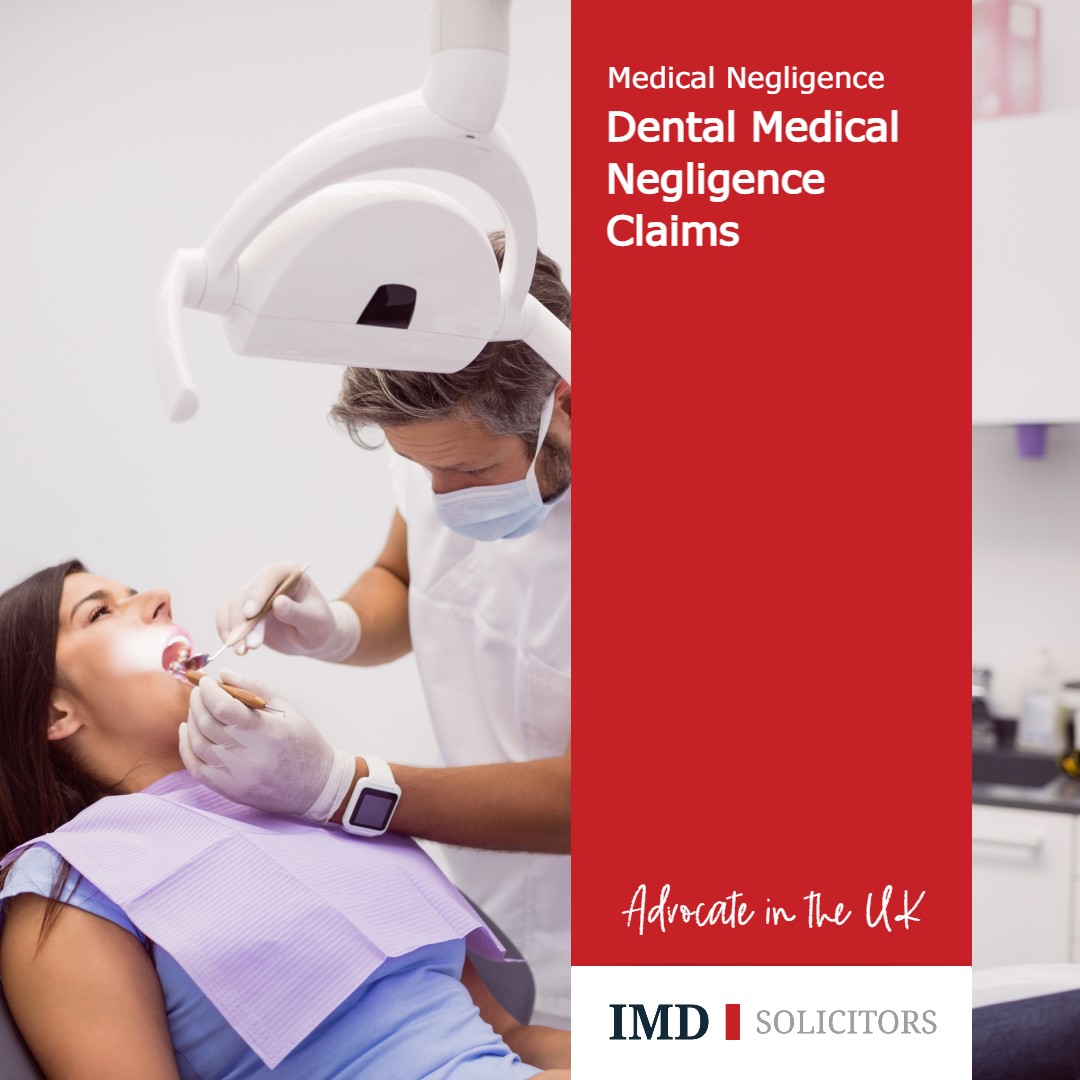
We all will at some point need the input and care from a dental expert yet the fear of going to a dentist often outweighs the positive aspect of good dental care. Most dentist like other medical professionals are trying their best to treat their patient with the best care and skill.
However, dental negligence can happen. As lawyers who represent clients with medical negligence claims, we also have experience in helping our clients when dental care goes wrong. Interpreting the complex dental records to help us advise our clients is an important part of the process in a dental negligence case and that is what we do for our clients.
Dental claims have increased recently and many patients have found it hard to see an NHS dentist. Some people have no choice but to wait to see an NHS dentist as they cannot afford private dental care. Dental negligence claims are far from easy to prove but this should not put off a patient who feels the dental care they received was below standard. A patient would need to show breach of duty of care and that as a result of the treatment or lack of the correct treatment they suffered harm and loss. Loss can in the form of pain and suffering and financial losses such as having to spend more money to rectify poor dental treatment.
All cases must be supported by expert dental medic evidence which supports the patient’s case. There is a time limit with such claims and the usual time limit is 3 years from the date of negligence or three years from the date of knowledge of the negligence. It is the dentist who is held responsible not the dental practice. Most dental practitioners are self -employed and are responsible for their own indemnity even if the patient is an NHS patient. It helps to know the name of the dentist who carried out the treatment.
Dentists are required to have dental indemnity and they will usually be members of say the General defence union or the medical dental society.
So how difficult is to prove a case? If the medical expert states it is perfectly possible to break a person’s jaw to treat a molar then there is no breach of duty of care. Usually, clients seek legal advice when they find themselves having to have remedial treatment when things go wrong.
Dental claims arise from claims involving the teeth, gums, nerve tissue or surrounding tissues of the teeth. Some claims stem from negligent treatment including wrongful extraction, negligent extraction, fillings and poor root canal procedures.
A wrongful extraction could be negligent but proving consequential loss may be hard. If the patient has a tooth that has for example deep tooth decay, the
chances are that the surrounding teeth may not be in excellent state so the tooth extracted might have been compromised already. The defence could argue the wrongful extracted tooth had a limited ‘life span’.
There is an obligation on the dentist to be honest if the extraction results in an infection then you have consequential losses but most procedures carry risks, and infections can spread which in turn can cause abscess. A tooth is very complex and in the ways it’s held. Often to treat a particular issue, access can be down the sides of the root for example.
In short there could be a claim if the treatment was not necessary. Equally, if the treatment fails this may not necessarily amount to a claim for damages.
It is wise to ensure you ask the dentist before treatment on the failure rate, and likely chances of success of a dental procedure before you consent to treatment. So how can we help? If you or a loved one feel they may have a dental medical negligence claim it is best to take legal advice from a firm that has the expertise to help you as early as possible. Call our friendly team on 0330 107 0107 for a no obligation consultation or email us at info@imd.co.uk and we will be happy to discuss your concerns.
This article is for general information only and does not constitute legal or professional advice. Please note that the law may have changed since this article was published.